Career Colleges and Vocational Schools in Spain
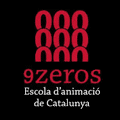
9zeros, Escola d'animació de Catalunya

A Tempo, Estudis Musicals

Academia Blancafort
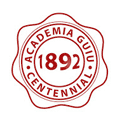
Academia Guiu

Academia L´Hôpital

Accés, Centre Acadèmic

Acedis Formación

Aeroflota del Noroeste – AFN, Piloto Profesional de Líneas Aéreas

Aerolink Air Services

afilm International Film Workshops

Airman Madrid

Amanay Surf School and Surf Camp,Fuerteventura

Aranda Formación

ARE, Alto Rendimiento Empresarial

Ars Animation

ars studios

arte4 estudio de actores

ARTENEO Formación en Artes Visuales

Aula Estudio Formación

Aziz Escuela Taller de Joyeria

Azpe, S.L.

BAI, Escuela de Empresa y Comunicación

Barcelona SAE

British School, Tarragona

BSI España
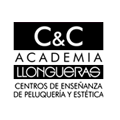
C&C Academia Llongueras

Campus Training

Casa del Cine

Castellana Sports Club

CCC Centro de Estudios

CEAE, Centro de Estudios Aeronáuticos

CEAS - Internacional

CELEC, Centro de Estudios

Centervol

Centro de Estudios Adams

Centro de Estudios Luis Vives

Centro de Nuevas Tecnologías MARCOS

Centro Español de Nuevas Profesiones

Centro Superior de Hostelería de Galicia

CES Escuela Superior de Imagen y Sonido

CESI, Formación, Consultoría, Coaching

CETT Tourism and Hospitality Education

Churruca Formación

CIM - Cursos de Formación

Conservatorio de Musica de Alcañiz

Conservatorio Profesional de Danza

Criteria

Edisur Multimedia

El Casal

El Laboratorio Centro de Formación

English Centre International

Escola de Hoteleria JOVIAT de Manresa

Escola Massana

Escuela de Arte de Oviedo

Escuela de Cine y Televisión de Madrid Septima Ars

Escuela de Danza Esther Recuero

Escuela de Formación Turística TURISVIA

Escuela de Hostelería de Sevilla

Escuela de Hostelería Toledo

Escuela de Música Creativa

Escuela de Turismo de Baleares

Escuela Internacional de Diseño y Moda ISA

Escuela KROOM DOS Diseño de Moda

Escuela Superior de Comunicación, Imagen y Sonido

Escuela Superior de Diseño ESDI
Escuela Superior de Gastronomía y Turismo Torremolinos-Costa del Sol

Escuela Superior de Hostelería y Turismo de Madrid

Escuela Superior de Marketing – ESUMA

ESDIP - Escuela Superior de Dibujo Profesional Comunicación e Imagen
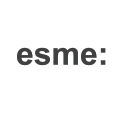
ESME, Escuela Superior de Moda y Empresa

Estudio de Arte 13

Estudio de Teatro David Amitin
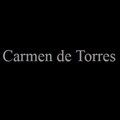
Estudio Flamenco Carmen de Torres

Estudios Norteamericanos-Instituto Franklin de Investigación-University of Alcala

Estudis de Teatre Berty Tovías

Formanet, Centro de estudios de las ventas

Formas Almeria

Fundación Cristina Heeren de Arte Flamenco

Gesforem, Gestión de Formación y Empleo

Gestair Flying Academy

Growman Group

Hotel-lo. Hotel Management Solutions

Hypatia Formación Ponferrada

ICT - Instituto Catalán de Tecnología

IES Los Ángeles

Imásd Forma

Implika

Implika, Cursos a Distancia

Instituto Didactia

Intensive Workshop in Corporeal MIME – Advanced Level- MOVEO

Kiteschool Kite Fun Tarifa

LyC Formacion Oviedo

Miami Ad School Madrid

MOVEO - Full-Time Corporeal Mime Diploma Course

Moveo - centro de formación y creación

Politeknika Ikastegia Txorierri S.Coop.
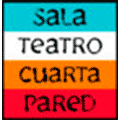
Sala Teatro Cuarta Pared
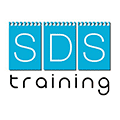
SDS Training

Seminario Teológico Al-Ándalus STAA
Career Colleges and Vocational Schools in Spain by City:
AdejeAlcala de HenaresAlcañizAlcobendasAlcorcónAlicanteAlmeríaBadalonaBarcelonaBilbaoCaleta de FusteCalpeCarballoCastilleja de la CuestaCordobaCorralejoCosladaCulleredoDerioEl Puerto de Santa MariaEmpuriabravaGetxoGironaGranadaGranollersGuimarIrunLa CoruñaLas RozasLeónLugoMadridMalagaManresaMaracenaMarratxíMurciaNerjaOrenseOrihuela CostaOviedoPadulPalenciaPalma de MallorcaPamplonaPonferradaPozuelo de AlarcónSabadellSan RoqueSan SebastianSantiago de CompostelaSevilleSitgesTarifaTarragonaToledoTorrellanoTorremolinosValenciaValladolidVicVigoVilobí d'OnyarAbout Career Colleges and Vocational Schools in Spain
In today’s challenging economic climate, people in countries all over the world are having a hard time finding rewarding and remunerative work. It is widely known that education is among the best ways to solve this problem–people with more advanced degrees almost universally earn more and work at jobs that they find more interesting and challenging. However, getting a college degree is not an option for everyone. Tuition and fees are steadily rising, and many prospective students simply do not have enough time to go back to school and complete a degree. For these people, career colleges and vocational schools are an excellent option. Vocational schools and career colleges offer courses in a broad range of subjects.
Spain is no exception to this global trend. More and more students are turning to vocational training rather than college, since it enables them to advance their careers without the overwhelming commitment of time and resources. In Spain, 2 types of vocational training are available: Middle Grade and Superior-level. Students who have completed their compulsory secondary education and obtained an ESO diploma are eligible to apply for vocational training at the Middle Grade level. At this level, students can find courses in a wide variety of subjects, from photography and creative writing to plumbing and automotive repair.
Advanced-level training at Spanish vocational schools and career colleges is available for students who have gone a bit further in their high school education. Students who have attained a Spanish Baccalaureate (which requires 2 additional years of secondary school beyond the ESO) can get more challenging vocational training through Advanced-level programs. Unlike Middle Grade courses, Advanced-level training is sometimes used as a stepping stone into college. Some 4 year degree programs accept credits from Advanced-level coursework, so students who excel in their vocational training can sometimes go on to complete more advanced degrees at colleges and universities. Others, of course, take their degrees and seek employment immediately after graduation.
Regardless of the level, vocational training is a wise career move for countless young people in Spain. In addition, people at more advanced stages in their careers often return for training or retraining in order to adapt to a changing economy. Workers who have been laid off, or who feel that they need to switch careers, can get retrained at any of Spain’s numerous career colleges and vocational schools targeted at mid-career learners. This emphasis on re-training has given countless Spanish workers a second chance at a fulfilling career, and has introduced a valuable flexibility into Spain’s workforce.
Thanks to increasing standardization of vocational education throughout Europe, credentials gained at career colleges in Spain can be applied to a much wider job market. Employment in nearly all sectors of the economy is becoming more and more globalized every year, so having a degree or certificate that is recognized in numerous countries is a considerable advantage.
Like in many other developed countries whose economies have been sagging in recent years, vocational training is on the rise in Spain. As college degrees and advanced training become more and more common in the work force, they become more and more essential for all applicants to have on their resume. Unfortunately, fees are also on the rise and family incomes are in decline. All of these factors lead to an increased number of Spanish students turning to career colleges and vocational training as a way to get an advanced without the commitment of time and resources that would be necessary for a college degree.There are essentially two types of vocational training in Spain: Middle Grade and Superior-level. Middle Grade training is a more rudimentary type of program, available to anyone who has attained the level of an ESO diploma (the end of compulsory schooling in Spain, roughly equivalent to a 10th-grade education in the United States). Middle Grade programs typically do not lead into college study, but are excellent training for various trades and vocations nonetheless.
The second type of vocational training that is available in the country is Advanced-level training. Advanced-level training is available to those who have finished their Spanish Baccalaureates, which means they have done an additional 2 years of secondary school and reached the equivalent of an American 12th-grade education. Advanced-level training, naturally, tends to lead to more challenging and lucrative jobs than middle grade. The completion of an Advanced-level training cycle also entitles the student in most cases to continue his or her study at a college or university. Thus, advanced-level vocational training can serve as a kind of stepping-stone between high school and college.
Spain’s economy is extremely diverse, and the country is large, so there is a huge variety of vocational training available for ESO and Baccalaureate graduates. Vocational training in Spain could mean anything from art school to technical studies in skilled trades such as plumbing or secretarial skills. Vocational training or a degree from a career college can be a valuable asset in many different sectors and industries.
There are also a number of career colleges and vocational schools in Spain that are targeted at non-traditional students. Rather than young students straight out of secondary school, these programs are geared toward unemployed adults or those who are seeking a career change. In the current global economic crisis, this opportunity for re-training has been a great benefit to the Spanish economy, since employees who are laid off or who find that their skills have become obsolete can get re-trained and end their unemployment much more quickly. This gives the Spanish economy an adaptability that makes it more resilient than some other developed countries that have not invested in such training programs.

